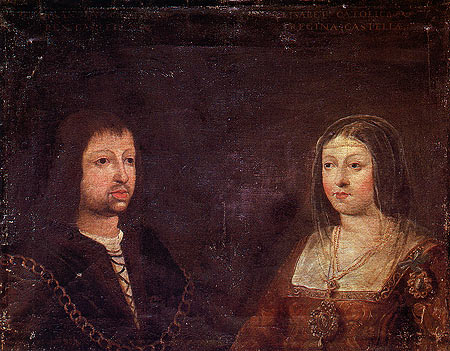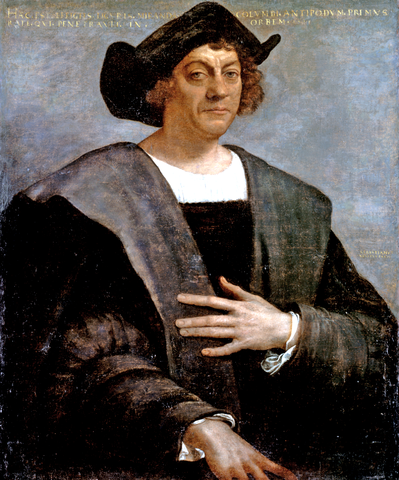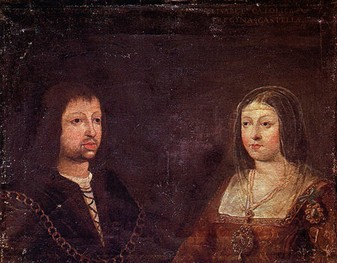
Spanish monarchs Ferdinand and Isabella launched the inquisiton the same year they funded Columbus' first voyage to the Americas.

The great Genoese navigator, Christopher Columbus
The
legal scholar and historian Robert Williams argues that no single
historical incident better illustrated the great transformations
occurring throughout Discovery-Era Europe than Queen Isabella's
acceptance of Antonio de Nebrija's Gramatica, the first study of
grammar ever compiled for a modern European language. click here for more
When Nebrija presented it
to the queen, she is reported to have asked, "What good is
this?" The meek scholar, fearful of drawing attention to
himself and his landmark achievement, offered a simple but profound
answer: "Language is the perfect instrument of empire." The
rest, as they say, is history.
The
discourse of empire required monarchs to reconcile the duty of
universal guardianship of the church with the practical demands of
colonizing new lands. As the rest of Europe was emerging from
the Middle Ages, these early discourses on the nature of conquest
put Spain and Portugal in positions of leadership and dominance
with regard to extending their trading empires beyond the
boundaries of Europe.
- Under the new unified Spanish Crown, seven centuries of Moorish
rule came to a bloody end at the battle of Grenada in 1492.
- The Spanish Inquisition gave Muslims and Jews a clear
choice; either conform to the teachings of the Vatican, or
flee. Most fled.
- The bloody intrigues between petty princes and minor kings,
scattered across Europe, would be the midwives of nationhood that
would begin to draw the new geo-political boundaries of Renaissance
Europe.
In addition to
these transformative events, Isabella and Ferdinand blessed (and
financed) Columbus' bold voyage in search of a shorter route to the
Indies. If successful, it would enable Spain to leapfrog over
the Portuguese colonies in Africa. To underscore the
importance of the church in any discussions of Spanish conquest and
colonizing enterprise, the queen instructed Columbus to submit his
proposal to a court of priests and canon law scholars, who granted
their permission.

Before Columbus
had even returned from his first voyage, the Spanish crown had sent
envoys to the Vatican with draft documents of title confirming
Spain's right to Columbus' discoveries in the New World.
Spain's quick action demonstrates the importance that was attached
to the legitimizing function played by the papacy in the Discovery
Era. It just so happened that the new pope, Alexander VI, was
the Spanish prelate Rodrigo Borgia. Never would he have
become pope without the support of Isabella and Ferdinand.
Related People
Related Events
Related Flashpoints